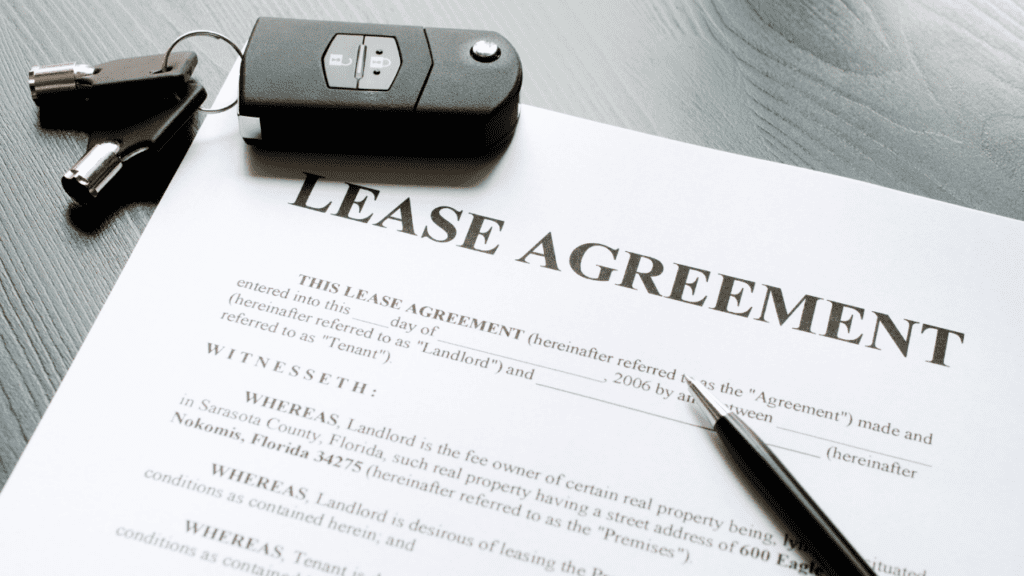
Every landlord dreads the difficult tenant. That might be the resident who calls and demands an immediate resolution to every minor problem, even if it’s something that you cannot possibly prioritize.
They’ll maybe have beef with their neighbors all the time.
Some difficult tenants will pay rent late every month. Maybe they’ll stop paying entirely.
Difficult tenants won’t communicate. Or, they’ll want to call and chat for no serious reason all the time.
Managing tenants is not always easy.
When it comes to the annoying tenants, what you really have to remember is that those residents are your paying customers. If they’re not difficult, merely time consuming, you want to set some clear boundaries, share your expectations, and work around them as best you can.
You can’t be friends with your tenants.
But, you do want to enjoy a pleasant – and profitable – rental experience.
That requires a positive, respectful relationship.
Experience has demonstrated over and over again that when our residents are satisfied and happy with the service they’re receiving, our jobs as property managers are much easier. When tenants are satisfied, your earnings as the property owner are also more secure.
One of the benefits of having a property management partner is that you don’t have to think about your tenants at all. There’s no need for a relationship between you and your renters. That’s for us to navigate.
But let’s say you’re not working with professional property managers in Monroe or the surrounding areas. How can you manage difficult tenants? And, are there legal remedies you can take when it just becomes too much?
Let’s talk about that.
Managing Difficult Tenants Starts with Having (and Enforcing) a Strong Lease Agreement

Whether it’s a dispute or a late rent payment or a refusal to come into compliance when a lease violation is noted, you may find yourself having to refer to your lease agreement for direction on how to proceed.
You’ll want to make sure that lease agreement is good.
It has to be legally enforceable in the state of Washington. It also has to be compliant with all of the laws and requirements in the state of Washington.
If something goes wrong, the first thing you want to do is consult your lease agreement. A thorough and detailed lease agreement will provide a lot of value when it comes to navigating difficulties. This is the document that provides a clear and consistent starting point for the tenancy, and the place you will always want to go when there are questions or problems.
A good lease will:
| Set forth policies and procedures around everything from rent collection to pets. | Put down in writing the expectations you have for your residents and the tenancy. |
| Address your own responsibilities as the landlord. If tenants are being difficult because of something you’ve done or neglected to do, be prepared to hold yourself accountable. | Provide direction if there’s a dispute between tenants or between the landlord and the tenant. |
The lease is where all expectations and responsibilities are clearly laid out. For example, if there’s a dispute between two of your multi-family tenants about noise late at night, you can refer them to the quiet hours section of the lease agreement.
What Does a Difficult Tenant Look Like?

Everyone who has ever dealt with a difficult tenant might recognize the problem in one of these difficult tenant types.
| Tenants Who Don’t Pay Rent
You’ll need a process to deal with late rent payments, and while it should never be your first option, you also need to be prepared to file for eviction if you don’t get anywhere with your tenants. We recommend that you deal with non-paying tenants by communicating constantly, serving all the required notices and documenting the correspondence, and if necessary, talking to a lawyer or a property manager about eviction. Evictions are not good for anyone. They aren’t good for tenants, for owners, or for your property. Avoiding them is best, and a thorough screening process is one way to mitigate your eviction risk. But, even good tenants sometimes cannot pay rent, and you’ll need to be prepared. Keep the lines of communication open during the eviction process. Even as you move towards court, try to work out a payment plan or an exit strategy with your tenants. Eviction should be your last resort. |
Tenants Who Damage Property
Move-in and move-out inspection reports, with photos, are essential to protecting yourself against potential tenant damages and the costs that can add up when you have a difficult tenant destroying your property. Before making any repairs to your property, take pictures of the damage. Keep receipts and invoices from the work that’s needed to be done to restore the condition of your property to how it looked before they damaged it. The security deposit can be used. A good tenant relationship can prevent tenant damage. Conducting a maintenance walk-through during the tenancy can also tip you off to any potential problems. Hold your tenants accountable during the lease period, even if they’re being difficult. As we always say: document everything. Communicate as best you can, and try to come to some understanding with your tenants. |
Tenants Who Violate the Lease
Lease violations are problematic, and when you have a tenant who has moved in an unauthorized Pit Bull or allowed a guest to stay for months or painted the walls a bright, crazy color without your approval – you need to take action. A good tenant will immediately come into compliance when a lease violation is noted. A difficult tenant will dig in and stubbornly refuse to make any changes. They might ignore your communication attempts altogether. Put the lease violation in writing and include a copy of the lease agreement that references your tenant’s action. Provide them the steps to remedy the situation and a deadline by which it needs to be completed. If they do not comply, you have grounds to evict. |
| Tenants Who Are Not Good Neighbors
Maybe you have a tenant who is constantly causing problems for other tenants, or even for neighbors who are not your tenants. When a resident is playing loud music, listening to their television extra loud, or not cleaning up after their pets in the neighborhood, you can expect complaints and disputes. If you have to get involved, be empathetic and compassionate. Do what you can to ensure your residents are following the lease and respecting the community and the neighborhood. Again: prevention is so much easier than cure. Screen tenants thoroughly. Invest in good relationships. |
Tenants Who Commit Crimes
When there is criminal activity happening in your rental home, you can evict that tenant right away. The crime has to be documented, of course, so you’ll need a police report or some kind of evidence that supports your reason for removing a tenant. |
Tenants Who are Demanding
You may spend a lot of time responding to, listing to, and dealing with difficult tenants. Sometimes, they’re simply too demanding and it takes you away from the other work you could be doing for your properties and your other tenants. You’ll need to set some boundaries. This is not always easy, and it’s one of the best reasons to work with a property manager: you won’t have to deal with that demanding, time-consuming tenant. Your management partner will know how to create a relationship that manages the tenant’s difficult personality while still providing an outstanding rental experience. |
Conflicts and Disputes with and between Difficult Tenants

We don’t enjoy wading into conflicts that we don’t need to be present for. You probably don’t like conflict, either. So how can you prevent it in your rental properties?
We’ve got a few ideas, based on our many years of experience as property managers.
It isn’t difficult to see how most landlord and tenant disputes are the result of poor communication or one party not understanding their responsibilities. The worst disputes can lead to court appearances, and those rarely work out well for landlords.
Let’s avoid court.
Let’s avoid tenant disputes.
Let’s keep those residents happy so that they’re paying rent, taking care of your property, and renewing their lease agreements.
Here’s how to minimize disputes with tenants and between tenants.
| Screen tenants well
One of the best ways to avoid tenant disputes is by attracting, placing, and retaining those residents who are unlikely to cause problems or initiate conflict. It’s not always easy to identify difficult tenants right away. There’s no screening system in place that tells you a tenant will be more trouble than they’re worth. And, every tenant screening process needs to follow all fair housing laws. This is non-negotiable. You have to screen every applicant consistently and objectively. But, don’t be afraid to dig a little deeper. In addition to your financial screening and your investigation into prior evictions and criminal backgrounds, take a look at rental history. Talk to current and former landlords, for example. |
Share and reinforce clear expectations
Tenants will quickly become difficult when they don’t understand what’s expected of them. Chaos and disorganization will always inspire conflict and disputes. So, share expectations and be clear about responsibilities at the beginning of a lease term. Then, reinforce those expectations throughout the tenancy. You’ll want rent to be paid on time, you’ll want your property to be cared for, and you’ll want any problems or repair needs to be brought to your attention immediately. Discuss the elements of the lease with your tenant before the move-in date so everyone understands how the tenancy should progress and who should be responsible for what. |
| Prioritize responsive maintenance
A tenant has every right to be difficult when you’re ignoring their maintenance requests. Be responsive when it comes to repairs. Your residents expect to live in a home that’s well-maintained and in good condition. That’s what they’re paying for. So, even if you cannot repair something right away, let your tenants know that you’re aware of the problem and you have a plan to take care of it. It helps to educate your residents on how to care for your property and manage minor issues on their own. If they know how to reset a garbage disposal and change the air filters, for example, they won’t bother you for these small things. |
Communicate and be available
Difficult tenants don’t communicate. Communication drives how your tenants interact with you and with each other. You’re responsible for setting communication standards, so remain available and accessible. Tenants should feel comfortable reaching out to you. Communication is critical to maintaining a good relationship with your tenant. Make sure they know how to reach you, and let them feel comfortable talking to you about things that might be of concern. |
Legal Considerations When you Have Difficult Tenants

Familiarize yourself with the state and local landlord-tenant laws in your area. These laws outline what you can and cannot do as a landlord and protect both your rights and those of your tenants. Knowing your legal boundaries ensures that any actions you take are within the law, reducing the risk of legal complications down the line.
When it comes to difficult tenants, your legal options are limited. Eviction will always be an option in many situations, but you cannot evict a tenant simply because they’re difficult. You’ll need to document that they’ve stopped paying rent or they’ve damaged your property or they’ve violated the lease agreement and they refuse to come into compliance.
Here’s how to move towards eviction, when it becomes necessary:
- The first step in any eviction is to terminate the lease or rental agreement. Typically, you will find you can do this by serving the tenant notice. The type of notice needed will be determined by the reason for the eviction. Usually, the notice period is anywhere between three and 14 days.
- Once you serve the notice, the next step is to file a complaint in the appropriate Superior Court. You’ll pay filing fees and submit the necessary paperwork.
- The summons and complaint will be served on your tenant by the sheriff, sheriff’s deputy, or anyone over the age of 18 who isn’t part of the case and competent to be a witness to the service, by giving a copy to the tenant in person or leaving a copy with someone of “suitable age” who resides in the rental unit.
- Your tenants will file a response with the court, and a date will be set for the eviction hearing. If no answer is received by the tenants – you’ll get a default judgment in your favor.
- There’s a court hearing. Sometimes, the tenant won’t show up and you’ll immediately receive a Writ of Restitution. If your tenant does show up, they’ll have an opportunity to tell the judge their story. You’ll want to be sure you’re prepared with documentation that supports why you’re evicting. Your lease agreement, for example, will need to be provided.
- A Writ of Restitution is issued if the judge rules in your favor. This is the tenant’s final notice to leave the rental unit. The notice gives them the opportunity to move out of the rental unit before the sheriff returns to the property to forcibly remove the tenant.
The eviction timeline depends entirely on the particulars of your case and the workload of the court where you’re filing. Typically, evicting a tenant can take between one and three months.
Sometimes, a neutral third party can help resolve disputes when direct communication fails. Mediation services offer an inexpensive way to address tenant issues without going to court. Mediators work by helping both parties reach a mutually satisfactory agreement. It’s an option when you have a difficult tenant who has become impossible to deal with, but you don’t want to drag yourself through the courts if you don’t have to.
Property Management and Tenant Relationships

We mentioned this briefly: if you really want to avoid those difficult tenants and you’re hoping for harmonious relationships between tenants and with tenants, you have a resource available: professional property management.
Your property manager acts as a buffer between you and the tenants. Property managers are also more knowledgeable about landlord and tenant law, and we have experience dealing with tenant disputes. You can save yourself a lot of time, and potentially a lot of money and liability by working with a management company.
We are happy to report that we don’t deal with a lot of tenant conflict or disputes. We establish and maintain great relationships, and we’re systematic and methodical about taking care of any minor problems or concerns that may pop up. We’re rigorous when it comes to screening tenants, and we are willing to balance holding tenants accountable with providing a fantastic rental experience.
Let’s talk about how to avoid the risk of difficult tenants.
Please contact us at Real Estate Gladiators. We serve Monroe, Issaquah, Bellevue, Everett, Lake Stevens, Kirkland, and other cities in and around King and Snohomish counties in Washington State.
